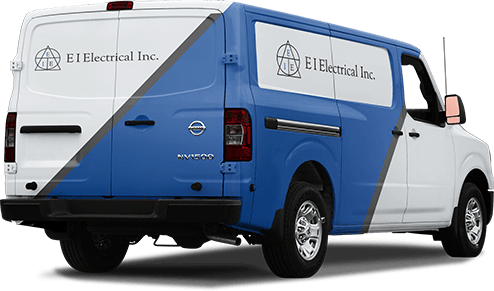Navigating the Currents: Hiring a New Construction Electrician for Your Building Project

Hiring a construction electrician for your building project is a crucial decision that requires careful consideration. In this article, we will explore the role of a construction electrician, how to find the right one, and the key aspects of collaborating effectively with them.
Key Takeaways
- Understanding the key responsibilities, qualifications, and safety protocols of a construction electrician is essential for making an informed hiring decision.
- Assessing a construction electrician’s experience, expertise, work portfolio, and references is crucial for finding the right fit for your project.
- Effective communication, project planning, and budgeting are key elements of successful collaboration with a construction electrician.
Understanding the Role of a Construction Electrician
Key Responsibilities
A construction electrician plays a pivotal role in ensuring the electrical systems of a new building are properly installed and functional. Their key responsibilities include:
- Reading and interpreting blueprints and electrical diagrams to understand the layout of wiring and equipment.
- Installing electrical systems, including wiring, outlets, and lighting fixtures, in accordance with local codes and regulations.
- Testing electrical systems to ensure safety and functionality.
- Troubleshooting and repairing electrical problems that may arise during construction.
- Coordinating with other construction professionals to ensure electrical work is completed in line with the overall project timeline.
Construction electricians need to stay updated with the latest electrical codes and safety standards to maintain a safe work environment. Their expertise is not only technical but also includes a strong understanding of project management and collaboration with the broader construction team.
Qualifications and Certifications
When considering a construction electrician for your project, it’s essential to verify their qualifications and certifications. These not only demonstrate a baseline of knowledge and skill but also ensure compliance with local building codes and safety regulations. A qualified electrician should have:
- A high school diploma or equivalent
- Completion of an apprenticeship or vocational training
- Relevant state and local licenses
- Certifications from recognized industry organizations, such as the National Electrical Contractors Association (NECA) or Independent Electrical Contractors (IEC)
Additionally, many electricians pursue continuing education to stay current with the latest electrical codes and technologies. This commitment to ongoing learning can be a strong indicator of a professional who takes their craft seriously.
Remember, the right certifications protect not only the integrity of your building project but also the safety of all involved. Ensuring your electrician is properly certified is a critical step in the hiring process.
Safety Protocols
Adhering to safety protocols is paramount when hiring a construction electrician. These protocols are designed to protect both the electrician and the construction site from potential hazards. A proficient electrician should be well-versed in the following safety measures:
- Knowledge of electrical codes and regulations
- Use of personal protective equipment (PPE)
- Regular maintenance and inspection of electrical tools and equipment
- Implementation of lockout/tagout procedures to prevent accidental energizing
Ensuring that your electrician follows these safety protocols can significantly reduce the risk of electrical accidents, leading to a safer work environment.
It is also essential to verify that the electrician has received proper safety training and holds up-to-date certifications. This not only demonstrates their commitment to safety but also ensures compliance with legal requirements.
Finding the Right Construction Electrician
Assessing Experience and Expertise
When considering a construction electrician for your building project, assessing their experience and expertise is crucial. Look for a history of successful projects that are similar in scope and complexity to your own. This can provide insight into their ability to handle the specific challenges your project may present.
- Review the electrician’s professional history, including the types of projects they have completed.
- Consider the length of time they have been in the industry, as a longer track record can be indicative of reliability and skill.
- Examine any specialties or areas of expertise that align with your project needs.
It’s important to ensure that the electrician’s experience is not only extensive but also relevant to the current project.
Finally, verify that the electrician holds the necessary licenses and certifications, which can serve as a testament to their commitment to professionalism and adherence to industry standards. Remember, a well-rounded electrician with a robust portfolio is more likely to deliver quality work that meets or exceeds expectations.
Evaluating Work Portfolio
When considering a construction electrician for your project, a thorough evaluation of their work portfolio is essential. This portfolio provides a visual and tangible record of the electrician’s previous projects, showcasing their craftsmanship and attention to detail. Look for a variety of projects that demonstrate a breadth of experience and the ability to handle the specific requirements of your project.
- Review the complexity of past projects
- Assess the quality of workmanship
- Examine the diversity of electrical systems handled
It’s important to not only admire the finished product but also to consider the challenges and solutions encountered during each project. This insight can give you a better understanding of the electrician’s problem-solving skills and their adaptability to unforeseen issues.
Finally, ensure that the portfolio includes projects that are relevant to your needs. For instance, if your project involves EV charger installation, you would want to see examples of this in their portfolio. This relevance is a key indicator of the electrician’s capability to deliver the results you expect.
Checking References
After evaluating a construction electrician’s experience and work portfolio, the next crucial step is checking references. This process provides insight into the electrician’s reliability, work ethic, and customer satisfaction levels. Here are some steps to consider when checking references:
- Contact previous clients and ask about their overall experience with the electrician.
- Inquire about the electrician’s ability to meet deadlines and handle challenges.
- Seek feedback on the quality of the workmanship and whether it met the project’s standards.
It’s important to note that a reputable electrician should readily provide a list of references upon request. This transparency is a positive indication of their professionalism and confidence in their work history.
Remember to verify the electrician’s business hours and licensing information to ensure they align with your project’s needs. For instance, knowing that their business hours are Mon-Fri 7am-5pm, Sat 8am-5pm can help you plan your project timeline effectively.
Collaborating with a Construction Electrician
Effective Communication
Effective communication is the cornerstone of any successful collaboration with a construction electrician. It ensures that both parties are on the same page regarding project goals, timelines, and expectations. Here are some key points to consider for maintaining clear communication:
- Establish a consistent communication schedule to discuss project updates and address any concerns.
- Utilize various communication tools such as email, phone calls, and on-site meetings to accommodate different situations.
- Be clear and concise in your communication to avoid misunderstandings.
- Encourage open dialogue and feedback to foster a collaborative environment.
Remember, effective communication is a two-way street. It requires active listening and a willingness to adapt to new information or changes in the project scope.
By prioritizing communication, you can avoid many common pitfalls that arise from miscommunication, ensuring a smoother workflow and a more harmonious working relationship with your construction electrician.
Project Planning
Project planning is a critical phase when collaborating with a construction electrician. It involves setting clear objectives, timelines, and deliverables to ensure the project progresses smoothly. Here are some key steps to consider:
- Define the scope of the electrical work, including all tasks and milestones.
- Develop a detailed work plan that outlines each phase of the project.
- Allocate resources effectively, ensuring that materials and labor are available when needed.
- Establish communication protocols to keep all stakeholders informed.
- Monitor progress regularly and adjust the plan as necessary to address any challenges that arise.
Effective project planning minimizes risks and lays the groundwork for a successful construction project. It is essential to work closely with your electrician to align on expectations and ensure that all aspects of the electrical installation are considered.
Remember, a well-planned project is more likely to be completed on time and within budget. It’s important to leverage the electrician’s expertise in planning the route for electrical wiring, preparing materials, and making connections, all while complying with codes.
Budgeting and Cost Management
Effective budgeting and cost management are critical for the success of any construction project. A construction electrician plays a pivotal role in this process by providing accurate estimates and managing expenses related to electrical work. To ensure financial efficiency:
- Develop a clear understanding of the project’s electrical requirements.
- Obtain detailed quotes from the electrician, including labor and material costs.
- Factor in potential contingencies for unforeseen issues.
- Monitor expenses regularly to stay on track with the budget.
Maintaining a transparent financial dialogue with your construction electrician will help prevent cost overruns and ensure that the electrical aspects of the project are completed within the allocated budget.
It’s also important to consider the long-term value of the electrical installations. Opting for energy-efficient and durable materials can lead to significant savings over time. Remember, the lowest initial bid may not always equate to the most cost-effective solution in the long run.








